Cuba-US Relations 70
From Machistas to Anti-Homophic Vigilantes
From Machistas to Anti-Homophobic Vigilantes

By Manuel E. Yepe
http://manuelyepe.wordpress.com/
Exclusive to the daily POR ESTO! of Mérida, Mexico.
Political organizations and religious institutions of all kinds, tones, and colors have tried to legislate about what have been (or are) the most appropriate “carnal relations.”
An investigative work on homosexuality in several countries, by University of New Mexico professor emeritus of sociology, Nelson Valdés, states that the Bolsheviks in Russia criminalized homosexuality for a short time in 1922. But it has been a general rule that both communists, socialists and capitalist parties always avoid defining guidelines on sexual orientation.
Valdés points out that in the United States, the change came just on December 6, 2011, when US foreign policy manifested itself in defense of lesbian, gay, bisexual and transgender “rights” in some countries of the world. Secretary of State Hillary Clinton then announced a global LGBT policy, although she acknowledged that she was talking about this subject “knowing that my country’s record on human rights for homosexuals is far from adequate.”
Until 2003, it was a crime in the United States to be LGBT. Many homosexuals in the United States suffered violence and harassment. For some – among them many young people – harassment and exclusion continue to be daily realities. “Hence, as in all nations, we have a lot of work to do to protect human rights in our country,” Secretary of State Clinton said in a December 2011 statement.
His new international policy promised to open the borders of the United States to give aid and protection to the LGBT refugees and asylum seekers … as long as they came from those countries of which Washington demands regime change.
Practically, the United States had only added one more pretext for its intrusion into the internal affairs of those countries that defied American power.
Shortly afterward, in the mid-1970s, the media “influenced” by Washington within their own nation and around the world unleashed a great campaign on the alleged discrimination against homosexuals in Cuba.
Simultaneously, a media crusade was initiated to demonstrate that “the roots of homophobia in Cuba were in the revolution of Fidel Castro and the new Cuban communist leadership.” In 2000, the Cuban leader admitted his personal responsibility for not having promptly corrected the phenomenon, derived from the stubborn policies of years before the revolution.
Until 1973 homosexuality was considered a mental disorder by the American Psychiatric Association (APA) and other related professions throughout the hemisphere shared similar attitudes. Homosexuality was considered until very recently a “deviation” and prohibited in the majority of the states of the United States. For its part, Cuba had inherited a macho culture because of long-standing attitudes, both in Spain and in the African cultures that contribute to its national identity.
However, in the last two decades, says Professor Nelson Valdes, the changes on issues of sexual identity and gender have been extraordinary. The Cuban media has played a systematic and concerted role in the education of the general population. Cinematography has been at the forefront in discussing these issues. In the last 13 years, Cuban television has more explicitly explored issues related to alternative sexual behavior.
The openness to openly gay behavior has not been limited to Havana alone. Homophobia is clearly in decline throughout the island as evidenced by the fact that gay and lesbian candidates are being elected to public office. A well-known foreign observer has pointed out that, in this area, “Cuba is much more liberal than the United States and Europe.”
What remains to be addressed is how it has been possible for a country characterized by such macho tendencies so entrenched in institutions, politicians, and national culture to have changed so much in the relatively short period of half a century and now that homophobia has become the enemy.
Indeed, the mainstream media and political and social leaders in the country have openly attempted to positively influence the population, in which some of the older people have tried to cling to the sexual and gender roles learned before the triumph Of the Cuban revolution.
Valdes highlights as a great achievement that Cubans have overcome the idea that machismo, manhood, and masculinity are the expressions of what defines a revolutionary. But, in my opinion, it is the awareness of the necessity of national unity for the defense of the revolution that has played an essential role in such a transcendental task for the progress of the human condition.
July 6, 2017.
Translated and edited by Walter Lippmann.
Trump: Thunders and Traps
- English
- Español
Trump: Thunders and Traps
BULLETIN 4. RESPONSES TO TRUMP’S MIAMI SPEECH AND THE MEASURES ANNOUNCED BY THE UNITED STATES GOVERNMENT
As part of the responses to the rude speech of Trump in Miami and the announced measures of the US government to intensify the blockade; Cubarte offers you other opinions, declarations and messages of solidarity.
By Ricardo Alarcón de Quesada RedDH
A CubaNews translation edited by Walter Lippmann.
Much has been said and will be said about the grotesque show that took place in Miami on June 16 and the lies and threats against Cuba there pronounced. Trump’s speech, incoherent and clumsy like all his, made at least two things clear: he will do all he can to harden US policy toward Cuba, canceling the timid steps that his predecessor had taken and the current President is an irremediable liar.
It is customary there in the North to mix politics with spectacle, information with entertainment, even if, as in this case, in terrible taste. For those who look at it from the outside, a good dose of Cartesian doubt is advisable and prudence is necessary to avoid being confused. Especially if it’s about what someone says like the quirky occupant of the White House.
Congresswoman Barbara Lee, a tireless fighter for justice and civil rights, was right to reject Trump’s speech. She stressed the importance of fighting to prevent specific regulations which would translate the presidential directive into mandatory rules that are even more damaging to peoples of the two countries. There, on that very day, there was evident proof of the correctness of her concern.
In his speech, Trump announced that he would issue a new executive order to replace the one already repealed that had guided Obama’s policy in its last two years. There in front of everyone, he added his signature to the document that appears on the official site of the White House, but which nobody read.
What he said does not correspond exactly with what he signed and the latter is what counts, because it has legal force and will guide the conduct of his administration. The contrast is evident, for example, in the case of remittances many Cubans on the island receive from their relatives residing in the United States. According to the speaker in Miami, such remittances would continue and would not be affected.
But right there, in the same act, without hiding, he signed an order that says exactly the opposite. On this issue of remittances, the document entitled “Presidential Memorandum for the Strengthening of The United States Policy towards Cuba,” which Trump signed and which was publicized by the White House and in which the fine print states that there would be millions of Cubans living on the island who would not be allowed to receive remittances.
In Section III, subsection (D), the definition of “prohibited officials of the Government of Cuba” is now extended to cover the officers and employees of the Cuban State and Government and members of the Armed Forces And the Ministry of the Interior, the cadres of the CTC and those of the local trade unions and Defense Committees of the Revolution. Professor William M. Leogrande estimates that this would be more than one
million families.
Trump boasted that he would drop all Obama’s moves and he probably intends to do so.
But he knows that this contradicts the interests and opinions of some business sectors linked to the Republican Party and that is why he hides behind aggressive rhetoric and often undecipherable jargon. With regard to the issue of Cubans and remittances had no choice but to use his favorite weapon: the lie.
We must now see how they write and apply this new order that seeks to punish the Cuban population as a whole.
From: cubarte <cubarte@cubarte.cult.cu>
To: Cubarte <cubarte@cubarte.cult.cu>
Subject: [special] Bulletin 4 of June 30
Date: Jun 30, 2017 3:20 PM
BOLETIN 4. RESPUESTAS AL TRUMP DE MIAMI Y LAS ANUNCIADAS MEDIDAS DEL GOBIERNO ESTADOUNIDENSE
Como parte de las respuestas al grosero discurso de Trump en Miami y las anunciadas medidas del gobierno estadounidense para recrudecer el bloqueo; Cubarte pone a su disposición otras opiniones, declaraciones y mensajes
de solidaridad.
———————————————————————————————————-
I. OPINIONES
TRUMP: TRUENOS Y TRAMPAS
Por Ricardo Alarcón de Quesada RedDH
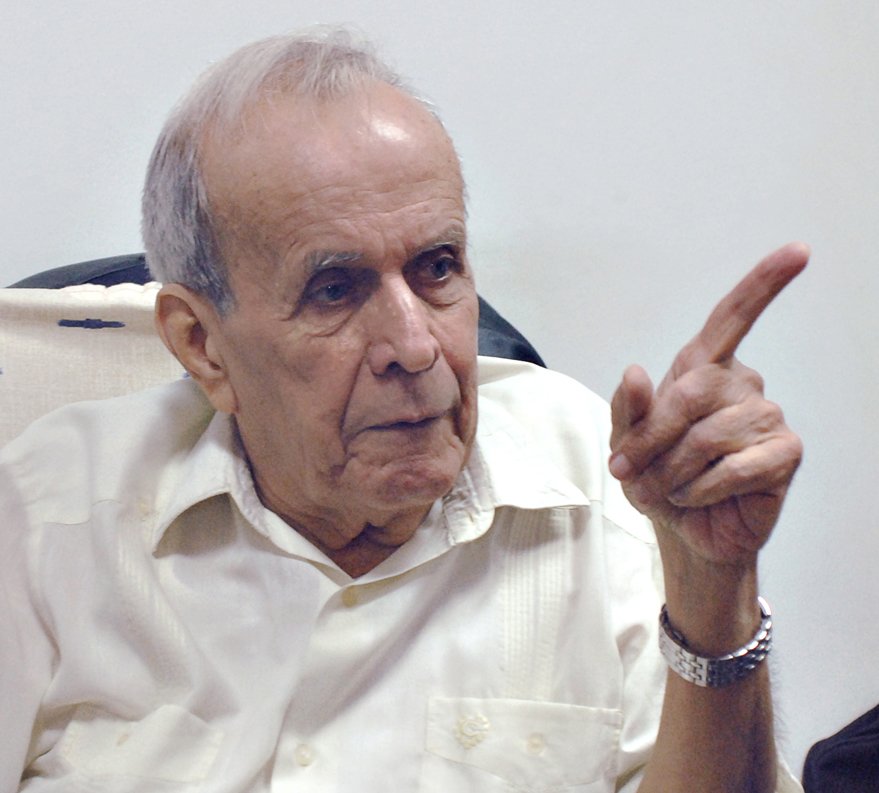
Ricardo Alarcón de Quesada
Mucho se ha dicho y se dirá sobre el grotesco show que tuvo lugar en Miami el 16 de junio y las mentiras y amenazas contra Cuba allí proferidas. El discurso de Trump, incoherente y torpe como todos los suyos, dejó en claro al menos
dos cosas: que hará todo lo que pueda para endurecer la política contra Cuba, anulando los tímidos pasos que había dado su predecesor y que el actual Presidente es un mentiroso irremediable.
Es costumbre allá en el Norte mezclar la política con el espectáculo, la información con el divertimiento, aunque sea, como en este caso, de pésimo gusto. Para quien lo observa desde fuera es recomendable una buena dosis de duda cartesiana y la prudencia necesaria para no dejarse confundir. Sobre todo si se trata de lo que diga alguien como el estrafalario ocupante de la Casa Blanca.
Con razón la congresista federal Barbara Lee, incansable luchadora por la justicia y los derechos civiles, al rechazar el discurso de Trump, subrayó la importancia de pelear por evitar que las regulaciones específicas para traducir en normas obligatorias la directiva presidencial sean aun más perjudiciales para los pueblos de los dos países. Allí mismo ese día se dio una prueba evidente de la justeza de su preocupación.
En su perorata Trump anunció que iba a emitir una nueva orden ejecutiva para reemplazar la ya derogada que había orientado la política de Obama en sus últimos dos años. Allí delante de todos, estampó su firma en el documento que
aparece en el sitio oficial de la Casa Blanca pero que nadie leyó.
Lo que dijo no corresponde exactamente con lo que suscribió y esto último es lo que vale, lo que tiene fuerza legal y guiará la conducta de su Administración. El contraste es evidente, por ejemplo, en el caso de las remesas que reciben
muchos cubanos en la isla de sus familiares residentes en Estados Unidos. Según el que habló en Miami tales remesas continuarían y no serían afectadas.
Pero allí mismo, en el mismo acto, sin esconderse, firmó una orden que dice exactamente lo contrario. A esta cuestión de las remesas dedica varios párrafos el documento titulado “Memorandum Presidencial para el Fortalecimiento de
la Política de Estados Unidos hacia Cuba”, que firmado por Trump publicó la Casa Blanca y con todas las letras establece que serían millones los cubanos residentes en la isla a quienes no se les permitiría recibir remesas.
En la Sección III, inciso (D) la definición de “funcionarios prohibidos del gobierno de Cuba” se amplía ahora para abarcar más allá de los dirigentes del Estado y el Gobierno cubanos a sus funcionarios y empleados y a los miembros y empleados de las Fuerzas Armadas y el Ministerio del Interior, a los cuadros de la CTC y a los de los sindicatos y los Comités de Defensa de la Revolución locales. El profesor William M. Leogrande calcula que se trataría de más de un
millón de familias.
Trump alardeó de que echaría abajo todas las medidas adoptadas por Obama y probablemente se propone hacerlo.
Pero sabe que ello contradice los intereses y opiniones de algunos sectores empresariales vinculados al Partido Republicano y por eso se escudó tras su retórica agresiva y su jerga a menudo indescifrable. Respecto al tema de los
cubanos y las remesas no le quedó otro remedio que emplear su arma favorita: la mentira.
Habrá que ver ahora como redactan y aplican esta nueva orden que pretende castigar al conjunto de la población cubana.
From: cubarte <cubarte@cubarte.cult.cu>
To: Cubarte <cubarte@cubarte.cult.cu>
Subject: [especial] Boletín 4 del 30 de Junio
Date: Jun 30, 2017 3:20 PM
USA TODAY announces Cuban coffee will reach the United States through a third party
- English
- Español

USA TODAY announces Cuban coffee will reach the United States through a third party
June 20, 2016
A Google translation. Revised by Walter Lippmann.

Cuban coffee picker in the eastern province of Santiago de Cuba. Photo: AFP
The next phase of change in Cuba’s relations with the United States will come in the form of coffee.
The Swiss company Nespresso, Nestle SA group, announced Monday that Cuban coffee will be sold in the US as of the end of this year. The long-banned coffee (as a result of the blockade), will be sold in a limited edition called Cafecito de Cuba, in stores, online and telephone trading.
Guillaume Le Cunff, President of Nespresso USA, said it is good to be the first company to provide Cuban coffee to the US market. He noted that Nespresso is very interested in developing a long-term agreement to ensure an adequate supply of Cuban coffee to US customers and improve the living conditions of the Cuban producers.
“We are not thinking of a short-term outcome,” said Le Cunff on Sunday. “This is the point nicial an initiative long term. We are very optimistic to manage and build the project. We want consumers in the US can experience this amazing coffee and enjoy them now and in the years to come. “
Nespresso it allied with TechnoServe, a nonprofit organization based in Washington, assisting coffee growers in Colombia. South Sudan, Kenya and Ethiopia. David Browning, vice president for strategic initiatives TechnoServe, recently visited Cuba to meet with government officials and visit the small farm where the Cuban coffee grows.
Most of the agricultural land in Cuba are managed by cooperatives of small private farmers. They sell their products to the government, which distributes on the island or export around the world. Nespresso begin their experiment buying Cuban coffee beans to European importers, toasting them, then packaging it and selling it in the United States.
Browning said the two companies discussed the new regulations approved by the US government and saw the opening they needed. “It was necessary that lawyers would ensure us that was totally understandable what the US government was trying. Everything was very clear, “he said.
According to USA Today, the next phase for Nespresso and TehcnoServe will help Cubans farmers improve their production process, helping get new agricultural equipment for harvesting plantation, something not clear how they would be implemented.
In a dispatch today, Reuters explains that in April, the US State Department added to coffee and other products to its list of eligible Cuban imports produced by independent producers.
The regulatory change made it easier Nespresso began sales in the United States of Cafecito de Cuba -a premium roasted espresso in their cafeteras- during this fall.
Cuba produces around 100,000 60-kg bags Arabica year, according to the International Coffee Organization. Although this volume is about five times the annual output of Jamaica, it is just a fraction of the 13.5 million bags waiting Colombia, the world’s largest producer of high quality Arabic washing, for this year.
(With information from Reuters and USA Today)
Cuba and exporters of products such as coffee can not yet directly access the US market. In a statement last May 5, the National Association of Small Farmers declared:
On April 22, the State Department announced the decision to include coffee in the list of Cuban products produced by the non-state sector, which would be imported into that country. With this action continuity to a measure adopted by the government of the United States in February 2015, allowing very limited Cuban exports, which excluded all goods and services produced by state enterprises was given.
He did not say the State Department is that the fact of having deprived unilaterally to Cuba – after decreed the lock- treatment of most favored nation, which rightfully ours as State Founder of the World Trade Organization, any product Cuban to be exported to the United States has to pay higher customs tariffs, which makes it practically impossible to import into that country.
It also ignores the Agrarian Reform Law, enacted after the triumph of the Revolution in 1959, did own the land more than 200,000 peasant families, and that the Cuban State has implemented since a program for productive, economic development and social peasantry of our country and ensured the production assistance, access to credit, secure market for their products and other social benefits.
No one can think that a small farmer can export directly to the United States. To make this possible must participate Cuban foreign trade enterprises and financial transactions have to occur in dollars, which so far have not been able to realize.
We are aware that the objective of these measures is to influence the Cuban peasantry and separate it from our state.
[…]
If the government of the United States really wants to contribute to the welfare of Cubans, what it has to do is definitely lift the economic, commercial and financial blockade imposed for more than 50 years, which is the main obstacle to the development of Cuba .

Café cubano llegará a Estados Unidos a través de un tercero, anuncia USA Today
20 junio 2016
Español
First Results of Trump’s Miami Speech
First Results of Trump’s Miami Speech
By Iroel Sanchez
June 17, 2017
A CubaNews translation by Walter Lippmann.
By Iroel Sanchez
June 17, 2017
July 30 is a day of national mourning in Cuba. On that date, each year, the streets of Santiago de Cuba are filled with a spontaneous pilgrimage; rose petals fall from the balconies, and people walk in silence towards the cemetery.
This yearly pilgrimage is a remembrance of the popular reaction of the city in response, in 1957, to the murders of young Frank País and Raúl Pujol by the police of Fulgencio Batista. It is also a remembrance of all the many who were victims of similar actions.
It was the son of one of Frank and Josue’s murderers whom the US President Donald Trump chose for the storytelling in the speech he delivered in Miami June 17. A violin in the hands of the offspring played –out of tune– the notes of the US national anthem.
In a theater that bears the name of one of the invaders that –under the orders of the CIA– suffered an embarrassing defeat at Playa Girón [Bay of Pigs], a politician many consider a “loser”, promised more of the same the whole world –and even his predecessor in office– recognized as doomed to failure.
The audience –mostly elderly Miamians who have not set foot in Cuba in decades– shouted, “USA, USA,” while the president announced that citizens of “the land of the free” will continue to be banned from engaging in tourism in Cuba. If they travel to the island they must do so in a group and with a detailed and auditable logbook, so that Big Brother can adequately confirm if they fulfill the mission that their government has given them: to overthrow the “regime” that has made sure that crimes such as those of December 30, 1957, never happen again o n the island.
The same President, who signed a $100 billion contract for arms sales to the Saudi Arabian monarchy less than a month ago, signed another in the presence of people who practiced terrorism. The objective: to prevent a single US penny from reaching the Armed Forces of the Republic of Cuba. He also promised to prevent trade and investments that do not exist today.
With the balance of his campaign promises showing more debits than credits and threatened by a congressional investigation following his pressure on former FBI director James Comey, Mr. Trump seems to have found among the Cuban-American ultra-right in Miami a way to show he is true to his word and to be applauded.
But rhetoric cannot conceal a reality: 73% of Americans and 80% of Cuban-Americans support the end of the blockade of Cuba, and Trump’s announcements this Friday will only increase that rejection. Time will tell. The day before the speech, Trump managed to make the analysts of The Miami Herald agree with those of The New York Times.
South of the Florida straits we did not have long to wait. The first results of Trump’s show in Miami are already perceptible in Cuba: there is more talk about politics. In social networks many young people, who do not usually discuss these issues, express their indignation with the Miami speech of the American President. Since the kidnapping of Elian Gonzalez, Cubans had not seen such a clear image of the Jurassic Park that would be ruling Cuba if there was no Revolution.
Sunday Special: US Cartoonists on Trump

Sunday Special
A sample of what some of the most renowned American caricaturists post about the politics of Donald Trump
Juana@juventudrebelde.cu
June 17, 2017 23:02:29 CDT
A CubaNews translation by Walter Lippmann.
Instead of the accustomed texts, the three of Sunday arrive with the vision that some of the most renowned American caricaturists publish in the media on domestic and foreign policies developed by Republican President Donald Trump, or his way of leading that nation .



Gerardo dreamed of being a father

Gerardo, the hero, dreamed of being a father
And he has fulfilled it, three times
By L Eduardo Domínguez, Claudia Yilén Paz Joa
June 17, 2017
When Sunday is celebrated in several regions of the world as Father’s Day, Gerardo Hernandez and Adriana Perez, will have two new reasons to celebrate the special date. The family they built together, fighting two life sentences and 15 years, has already grown to five members, like the five who were the heroes of their cause. The three children born in less than three years, although it is hard to believe, were dreamed of almost exactly as they arrived.
What is a day in the life of the hero who named in letters the children who were going to be born? How did he feed his hope and that of his beloved, more than ninety miles from an infernal hollow? What does a man feel when he fulfills all his dreams and a review of his life is full of impressive coincidences?
Behind the studio glass headsets and microphones are adjusted. They are ready now. Excited and happy, they share laughter and tears, after the poem that provokes memories, music and anecdotes of love. Don’t stop listening to the exclusive interview with the Hero of the Republic of Cuba that from his space “The Light of Memory”, Radio Rebelde gives to parents on their day this Sunday at 11:00 p.m. At Cubadebate we bring you the exclusive.
A CubaNews translation by Walter Lippmann.
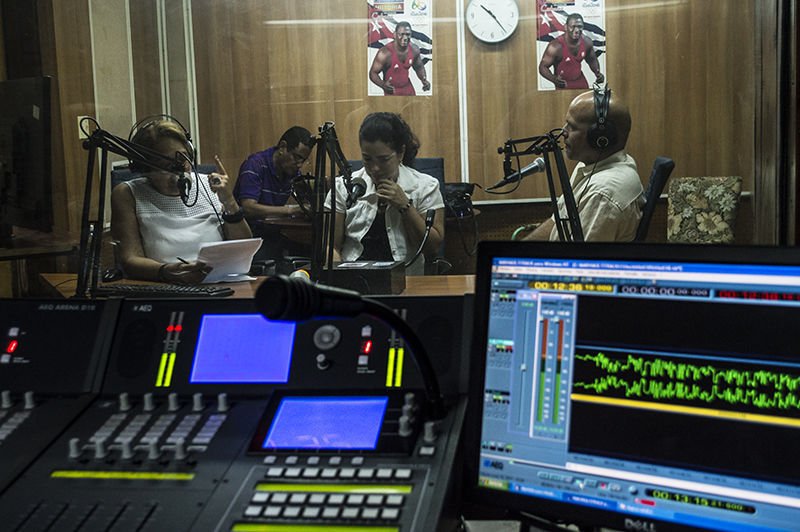
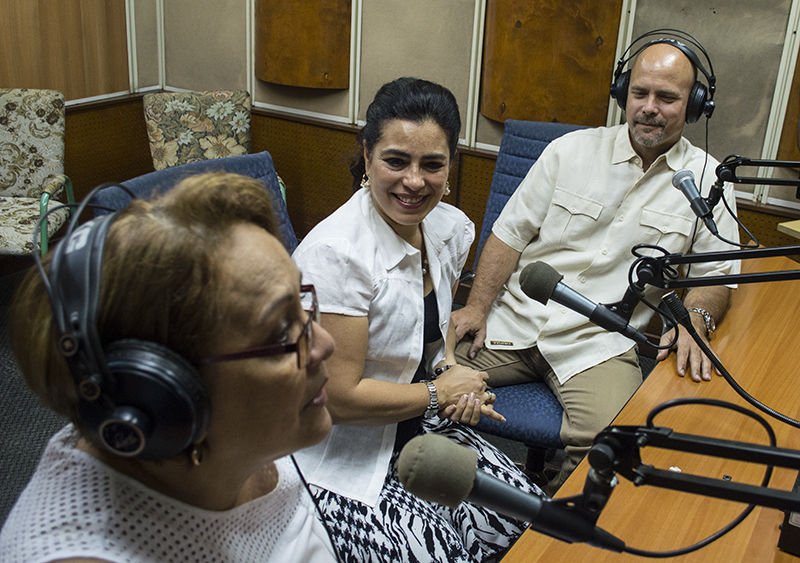
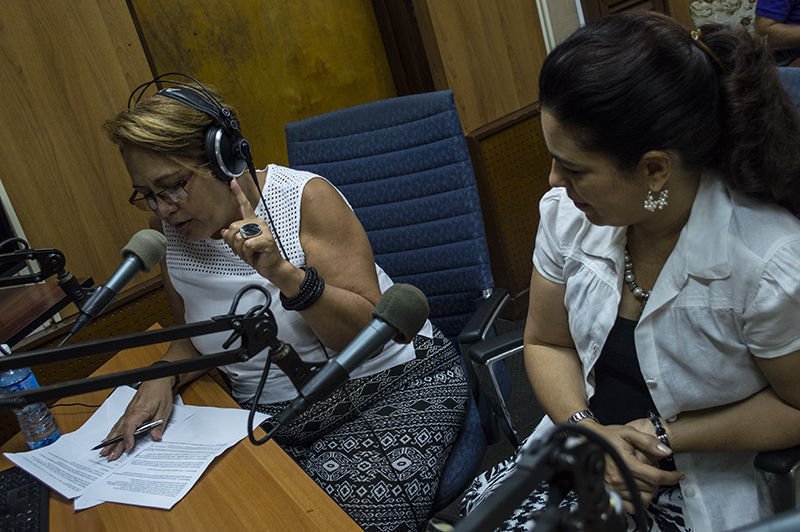
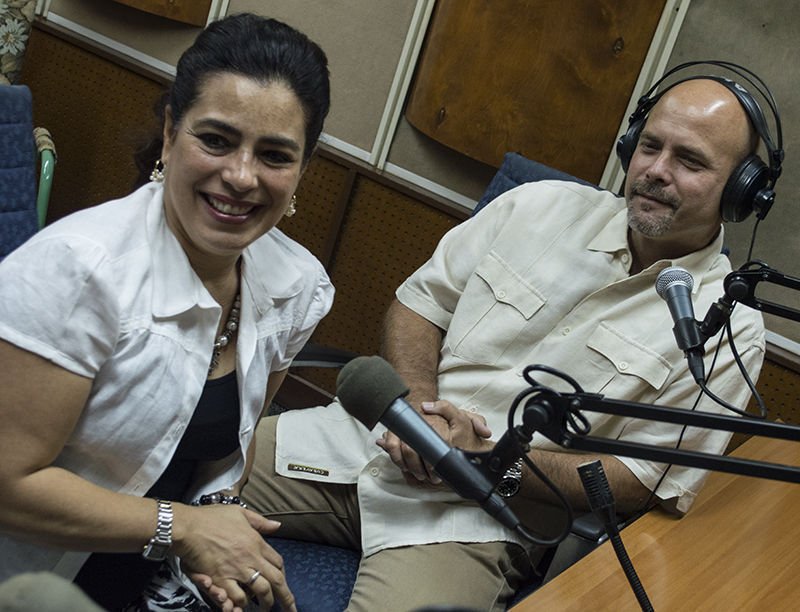
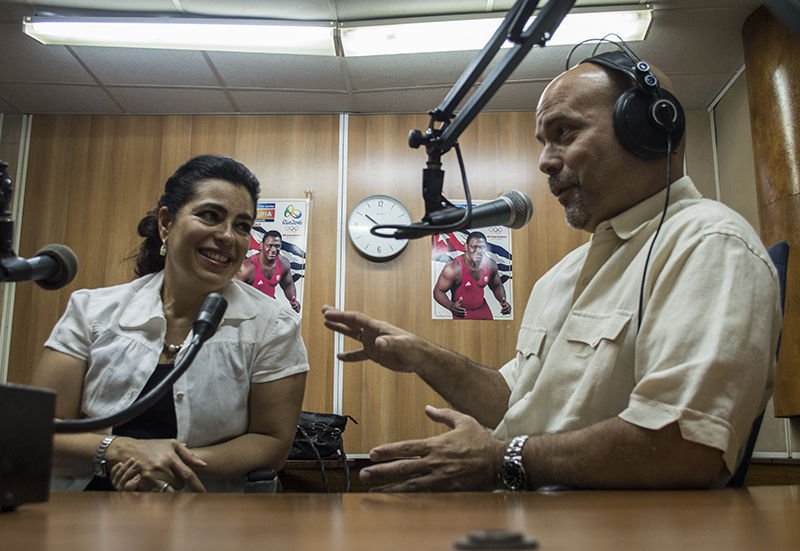
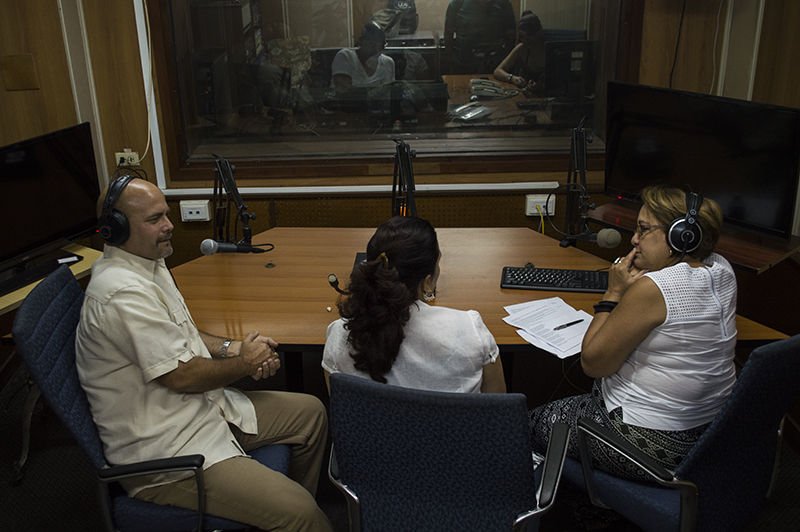
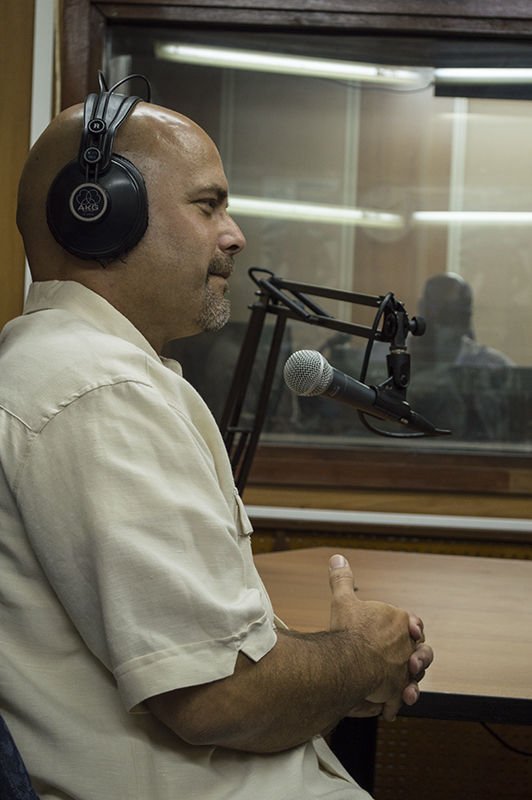
“The Cuban dissidents are an artificial phenomenon
- English
- Español
http://www.elespanol.com/
“The Cuban dissidents are an artificial phenomenon”
Cuban spy Gerardo Hernandez spent 16 years imprisoned in the US and was amnestied in the process of rapprochement.
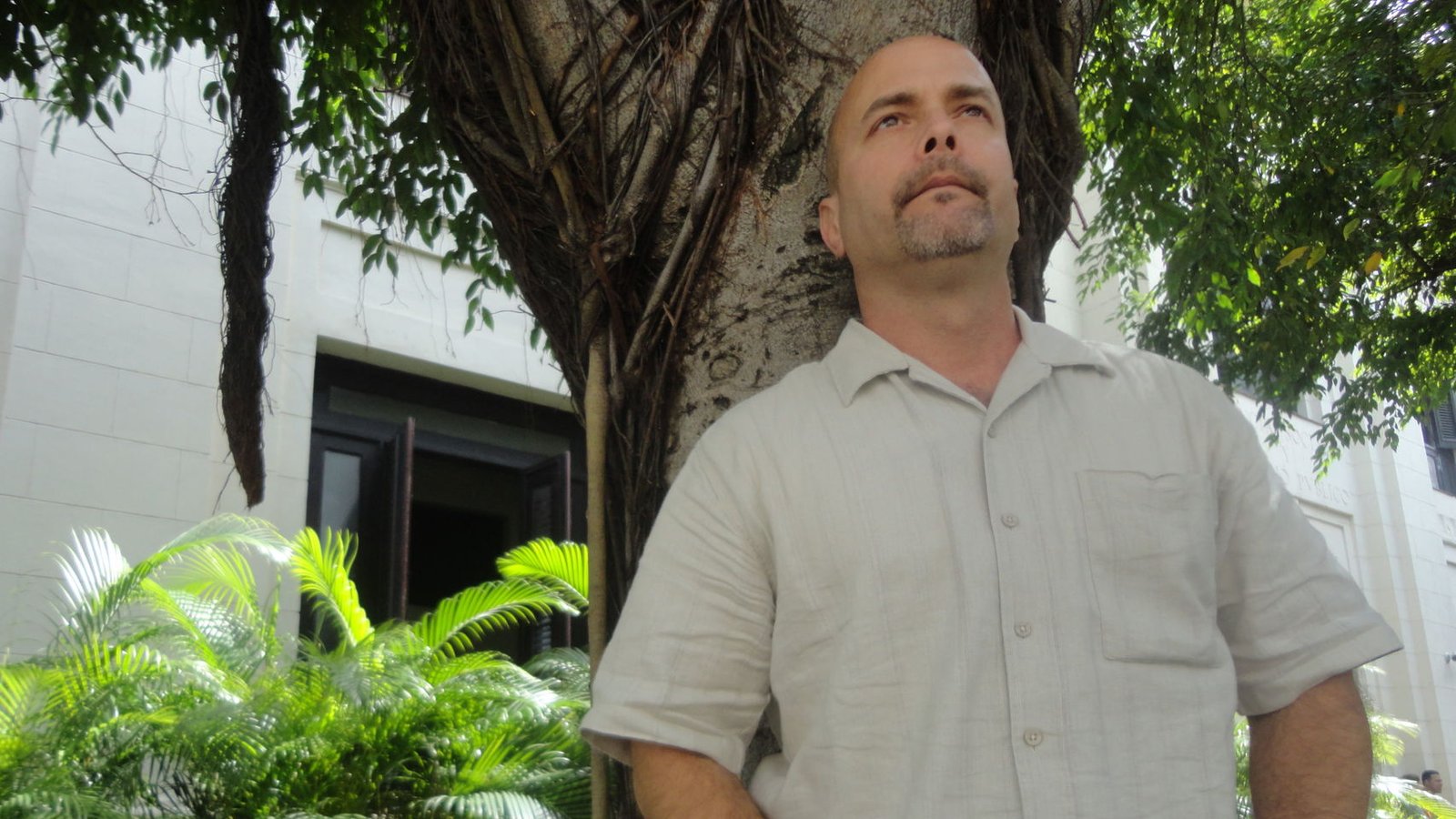
Former Cuban spy in the US believes that Havana has won the tug-of-war with Washington.
DANIEL PINILLA
Havana, 03/19/2016 02:45 h.
A CubaNews translation.
Edited by Walter Lippmann.
Gerardo Hernandez (Havana, June 4, 1965) is the son of a Canary Islands woman who came to Cuba when she was fifteen. He does not have a Spanish passport and considers himself a Cuban patriot. He is the man of the moment on the island. Convicted of conspiracy to commit espionage in the United States, he spent more than fifteen years in prison there.
On December 17, 2014 he was amnestied as a gesture of good will in the process of rapprochement between Cuba and the US. El Español has spoken with him under the watchful eye of the Alma Mater statue at the University of Havana days before the historic visit of Barack Obama to the island, which begins this Sunday. His words are echoed, and heavily so, throughout Cuba in this crucial moment for the largest of the Antilles.
Why were you sent to jail and why where you amnestied?
I was sent to jail because I was doing intelligence work for Cuba in the United States. For many years, groups that were sometimes paid and other times tolerated by the United States had been coming to attack Cuba, planting bombs in hotels, blowing up planes … The US never did anything to stop it, so Cuba was forced to send people over there to uncover their plans and send information over here.
We were arrested and tried in Miami without the minimum guarantees of impartiality. In my case, I was sentenced to two life sentences plus fifteen years of imprisonment. After sixteen years in prison, as part of the ongoing process of rapprochement, the two countries reached an agreement, a part of which was the release of three of the five of us who were still in prison.
Is it correct to say that you were a spy?
Look, there are people who defend us and who take offense by the term. I tell you that the term is wrong, but I do not take offense. Legally it does not apply to us because according to US law, we were not accused of spying, but of conspiracy to commit espionage. But I do not feel offended by the term, as I said. I was an intelligence officer and a spy is something that people talk about in the movies and such.
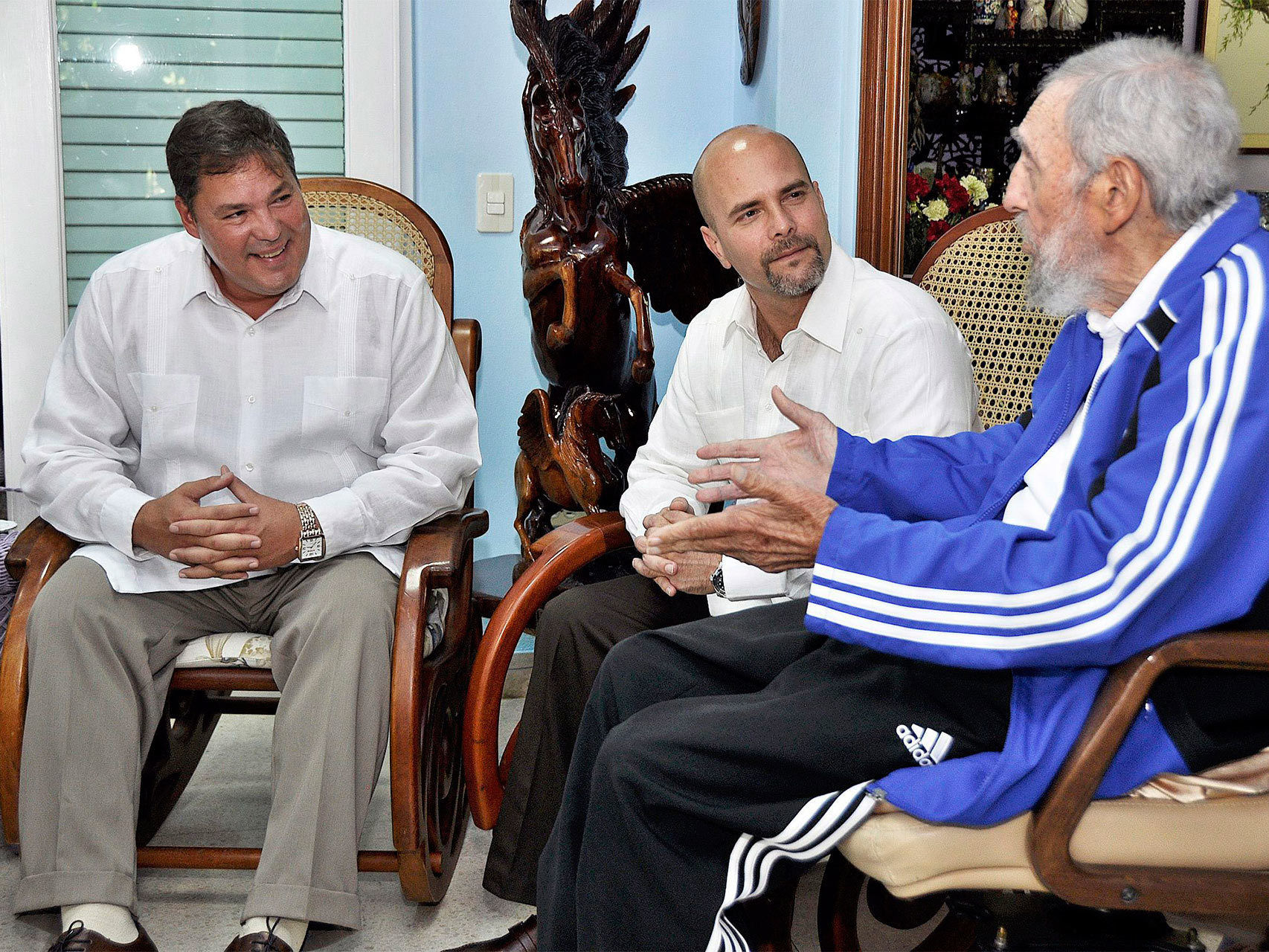
Fidel Castro talks to Hernandez and Ramon Labañino, another of the prisoners.
Photo: Cuban government
Looking ahead, do you see yourself returning sometime to the US, or do you think of the country holding a grudge?
I hold no grudge whatsoever. I took up a responsibility when I agreed to carry out my mission and I have no problem with that. While we did have the unpleasant experience of hearing people say that they wanted to lynch us, and of having had an unfair trial that lasted more than six months, there were also people, including political and religious officials, who were able to see that our cause was just; also there were actors like Danny Glover, who supported us.
Generally speaking I have no negative feelings toward the US people, but I do not see myself going back because one of the conditions imposed for our release was that we could never go back to that country.
I’m going to ask you to be critical of the Revolution and tell me what it has done wrong in these decades, and if you understand that it is time to seriously consider holding multi-party elections in Cuba.
I think that we do have options in Cuba. I guess you mean the fact that there is a single party. That is the result of historical factors: José Martí founded a single party to make it the party of the Cuban nation. Over time, the Communist Party of Cuba has opened up to other sectors such as the religious. Our goal is to make it even more participatory; but we firmly intend to maintain unity.
Our people, 90, 80 or 75 per cent of it support their Revolution.
Throughout our history we have paid dearly on account of disunity. If they manage to divide us, we will be in trouble. You cannot analyze Cuban reality without emphasizing that we are a small country only ninety miles away from the most powerful nation in the world, one that has been determined to prevent Cubans from choosing our own destiny. Our people, 90, 80 or 75 per cent of it support their revolution. You can rest assured that the day when Cubans do not support the revolution, this could not hold. If we are standing today, it is because we have the majority of Cubans with us. It is not a perfect society, but we want to make it ourselves.
Raul Castro has already announced that he resigns this year. There is talk about Vice President Miguel Diaz Canel, the Minister for Economy Marino Murillo, even about a son of Raul’s…
This is not a monarchy. In Cuba, the succession that occurred was because Raul was our vice president and there was no one else more apt or loved by the people. The [National] Assembly [Parliament] met and he was elected.
This is not a monarchy. In Cuba succession happened because Raul was our Vice President
My personal opinion is that it should be comrade Miguel Diaz Canel, who has a great performance record. But everything depends on the will of the Cuban people.
You speak of the will of Cubans and the possibility of it being expressed under the current regime. When you were in prison, the late dissident Oswaldo Paya collected signatures –as contemplated in the law– in what was known as the “Varela Project”. He demanded freedom of expression and assembly, entrepreneurial freedom, democratic elections and amnesty for political prisoners. He was ignored, but eventually some of his proposals have been adopted. What do you say to that?
Actually I was in prison then. I do know that there have been many projects financed from abroad. For less than that, in the United States you get accused of being an agent at the service of a foreign power, for which I got a fifteen-year sentence. I am sure that in Spain anyone who tries to change the government while being paid by a foreign power would go against Spanish law. If this happens in Cuba, other countries applaud. And, well, if we have taken measures that were in that project, let them be welcome.
The bottom line is: in Cuba do people really have the possibility to make decisions about the political system within the current framework?
Cuba’s current system is not perfect, just like all others. But I’ll give you an example: in the last election of the People’s Power, people who are openly against the Government were nominated. There was a vote and they had their chance. The only requirement in our system is that you get elected at the grassroots; you do not have to be a Party member. It is enough to have a base that supports you.
Yoani Sanchez is primarily a media phenomenon created by the Grupo Prisma, and she is better-known abroad than inside.
We can continue modifying aspects of the system to make it more participatory, but the possibility already exists. What happens is that these dissidents, who sometimes are better known outside Cuba than inside, do not have a base of social support. These are cases artificially created from abroad for a reason. And I’ll give you the case of Yoani Sanchez, a media phenomenon created primarily by the Grupo Prisma, who is better known outside than inside. She can stand here at any corner and nobody knows her.
Nor do the Cuban media give her any coverage…
Sure, she hasn’t deserved it either. The Cuban media would give coverage to a woman who may be having a hard time trying to push her family forward. But I do not see any merit in this person to promote her, and we are not going to waste any money of our media to do so.
There is a great expectation with Obama’s visit. Everyone in Cuba surmises that a new stage is about to begin, but no one gives a name to it. Perhaps it is an economic opening without altering the political system, as in China, or something else. What is your perception?
I don’t have a crystal ball to tell you how Cuba will look like in a few years. What I can tell you is what most Cubans want: a country that solves the problems that still affect us, but also that it does not resemble the Cuba of the past when it was necessary to make a revolution.
What would you demand from the United States so that it doesn’t stop at a policy of gestures; what specific measures would you like to see?
Just what we have demanded for more than half a century, since the triumph of the Revolution: For the US to recognize our right to exist as an independent and sovereign nation, to recognize that we are not their backyard. For them to understand that Cuba is a nation that decided its own destiny; and that we Cubans have the right to resolve our own problems without foreign interference.
In relation to the many Cubans who reside in the United States, conflicting versions circulate. The state newspaper Granma argues that this is not so and that they will do anything to prevent the Castro regime from receiving a life-line. What do you think?
For many years now a lot of surveys have been performed by respectable firms, some of which are not at all friendly to Cuba. Even surveys by the US government itself recognize that the vast majority of Cubans living in the US want a normal relationship with their country. Now then, that vast majority of Cubans do not yet have enough economic and political clout to push for more rapid measures.
Cuban power in the US is held by a minority segment –increasingly so– of powerful Cuban families who have found their way into Congress.
The political and economic power there is held by a minority segment –increasingly so– of Cubans who left this country. They belonged to powerful families and in recent years have come to hold seats in Congress. Up until this week, there were two aspiring candidates for the US presidency of Cuban origin [Republicans Ted Cruz, and Marco Rubio who has withdrawn from the presidential race]. That segment is increasingly small, but unfortunately it is the one that controls the banks and the media. The majority is on the other side, but unfortunately many still do not vote and have no power to raise an opinion.
If Ted Cruz wins, would it be good or bad news for Cuba?
I think it would be very bad, because they are people who have lived off the hatred industry for many years. Hatred against Cuba has given them a modus vivendi like Ileana Ros-Lehtinen, for example, Lincoln Diaz-Balart … members of Congress who for many years have not had a well-defined program other than hatred against Cuba. They have objected to everything that might have benefited the Cuban people. For instance, when hurricanes have devastated the Island and the Red Cross has wanted to seek help from the United States, they have even opposed that. Their preaching has always been: we will destroy the Government of Cuba; we will recover Cuba at any price. They have motivated a generation of old Cubans who know nothing but that message of hatred. That will change with the new generations of Cuban immigrants, especially starting in the eighties, who went to that country to advance economically and help their families.
If the US puts on the negotiation table the need for free elections in Cuba before discussing Guantanamo and the blockade, would it be acceptable?
Of course not. If we talk to them it is because they have recognized that it is impossible for Cuba to accept preconditions. For many years they said they had nothing to negotiate while the Castros were in power, the country was Communist and had a single party; Cuba always remained firm and said that if we ever sat down to negotiate, it would be on equal terms without preconditions. Finally they had to accept.
If we talk with the US it is because they have recognized that it is impossible for Cuba to accept pre-conditions
Do you think Cuba is the winner of this tug-of-war?
I think that Cuba has already won in the sense that we have not given up any of our principles to sit down and negotiate. They are the same since 1959. The United States has said for decades that it would never negotiate while the Castros were in power and yet, Raul Castro is our president, Fidel is alive and is our guide. And they are negotiating with us. It is a victory for Cuba that they have sat down to negotiate without conditions.
EX HUMORIST AND FATHER ‘BEHIND BARS’
Before joining the Cuban intelligence services, Gerardo was a cartoonist. Throughout his years behind bars he claimed he had not lost irony as a weapon of defense. “You can put humor into sixteen years in prison; it is something that helps a lot. We humorists have a particular way of seeing life, and is not that what we take everything lightly, but I do not know any embittered person who can be a humorist. In my case, my optimistic nature helped me a lot. All along the years that we spent in prison, the five of us often laughed at our own misfortunes. That helped us. “
In prison, the five of us often laughed over our own misfortunes
Gerardo has recently become a father. The numbers don’t add up for a period of normal pregnancy, since his daughter was born a few days after he was released. The explanation: “We always wished to have our child; we had asked for conjugal visits for prisoners, something that happens in Cuba but not in the United States, at least in federal prisons. My wife Adriana asked an American senator for help and he knocked on the right doors to allow me to make a donation after my wife had her eggs frozen. It was a process of in vitro fertilization”. The little girl is called Gema and she was born on January 6, 2015.
“La disidencia cubana es un fenómeno artificial”
DANIEL PINILLA La Habana
19.03.2016 02:45 h.
Gerardo Hernández Nordelo (La Habana, 4 de junio de 1965) es hijo de una canaria que llegó a Cuba cuando tenía quince años. Él no tiene el pasaporte español y se considera patriota cubano. Es el hombre del momento en la isla. Condenado por conspiración para cometer espionaje en Estados Unidos, ha permanecido más de tres lustros en la cárcel allí.
El 17 de diciembre de 2014 fue amnistiado como gesto de buena voluntad dentro del proceso de acercamiento entre ambos países. EL ESPAÑOL ha hablado con él bajo la atenta mirada de la estatua del Alma Mater de la Universidad de La Habana en los días previos a la histórica visita de Barack Obama a la isla, que se inicia este domingo. Sus palabras tienen eco, y mucho, en toda Cuba en este momento trascendental para la mayor de las Antillas.
¿Por qué fue encarcelado y por qué ha sido amnistiado?
Fui encarcelado porque estaba en Estados Unidos haciendo labor de Inteligencia para Cuba. Durante muchos años, grupos a veces pagados y otras tolerados por Estados Unidos han estado viniendo para agredir a Cuba, han puesto bombas en hoteles, derribado aviones… EEUU nunca hizo nada para impedirlo, así que Cuba se vio obligada a mandar gente a ese país para descubrir sus planes y mandar información para acá.
Nosotros fuimos arrestados, se nos hizo un juicio en la ciudad de Miami sin las mínimas garantías de imparcialidad. En mi caso se me condenó a dos cadenas perpetuas más quince años de privación de libertad. Después de haber cumplido dieciséis años en prisión, como parte del actual proceso de acercamiento, los dos países llegaron a un acuerdo, parte del cual era la libertad de los tres de los cinco que quedábamos encarcelados.
¿Decir que ejerció de espía es correcto?
Mira, hay personas que nos defienden y que se ofenden con ese término. Yo te digo que el término es incorrecto, pero yo no lo tomo como una ofensa. Legalmente no nos aplica porque las propias leyes de EEUU no nos acusaron de espionaje, sino de conspiración para cometer espionaje. Pero no tomo ofensa con el término, ya te digo. Yo era agente de Inteligencia y lo de espía es algo que dice la gente por las películas y demás.
PHOTO
Fidel Castro habla con Hernández y Ramón Labanino, otro de los encarcelados. Gobierno cubano
Mirando al futuro, ¿se ve regresando en alguna ocasión a Estados Unidos o piensa en el país con rencor?
No hay rencor ninguno. Asumí una responsabilidad cuando acepté cumplir mi misión y no hay problema. Si bien tuvimos la desagradable experiencia de escuchar a personas decir que nos querían linchar y de haber estado en un juicio sin garantías que duró más de seis meses, también hubo gente, incluso funcionarios políticos y religiosos, que supieron ver que nuestra causa era justa; también actores, como Danny Glover, nos apoyaron.
En sentido general no tengo ningún sentimiento negativo respecto al pueblo estadounidense, pero no me veo regresando porque una de las condiciones que se impusieron para nuestra liberación era que no podíamos regresar más a ese país.
Le voy a pedir que sea crítico con la Revolución y me diga qué ha hecho mal en estas décadas y si entiende que ha llegado el momento
de que se valore seriamente celebrar elecciones plurales en Cuba.
Pienso que en Cuba sí hay alternativas. Supongo que te refieres a que hay un único partido. Eso responde a factores históricos; José Martí fundó un único partido para que lo fuera de la nación cubana. Con el paso del tiempo, el Partido Comunista de Cuba se ha ido abriendo a otros sectores como el religioso. Nuestra meta es que sea aún más participativo, pero tenemos el firme propósito de mantener la unidad.
Nuestro pueblo, en un 90, 80 ó 75% apoya su Revolución
A lo largo de nuestra historia hemos pagado cara la desunión. Si logran dividirnos, estaremos en problemas. No puedes analizar la realidad cubana sin destacar que somos un pequeño país a sólo noventa millas del más poderoso del mundo, que se ha empeñado en impedir que los cubanos escojamos nuestro propio destino. Nuestro pueblo, en un 90, 80 ó 75% apoya su Revolución. Puedes estar convencido de que el día en que los cubanos no apoyen la Revolución, esto no podría sostenerse. Si estamos en pie es porque tenemos con nosotros a la mayoría de los cubanos. No es una sociedad perfecta, pero queremos hacerla nosotros.
Raúl Castro ya ha anunciado que este año renuncia a su cargo. Se habla del vicepresidente Miguel Díaz- Canel, del ministro de Economía Marino Murillo, incluso de un hijo de Raúl…
Esto no es una monarquía. En Cuba la sucesión que se dio fue porque Raúl era nuestro vicepresidente y no había nadie más capacitado ni querido por el pueblo. Hubo una asamblea y fue elegido.
Esto no es una monarquía. En Cuba la sucesión que se dio fue porque Raúl era nuestro vicepresidente
Mi opinión personal es que debe ser el compañero Miguel Díaz- Canel, que tiene una gran trayectoria. Pero todo depende de la voluntad de los cubanos.
Habla de la voluntad de los cubanos y de la posibilidad de que se exprese en el régimen actual. Cuando usted estaba en prisión, el
disidente ya fallecido Oswaldo Payá recogió las firmas como plantea la ley en lo que fue conocido como ‘Plan Varela’. Pedía libertad de expresión y reunión, libertad empresarial, elecciones democráticas y amnistía para los presos políticos. No se le hizo caso, pero con el tiempo se han adoptado algunas propuestas que proponía. ¿Qué opina?
Realmente yo estaba entonces en prisión. Sí sé que ha habido muchos proyectos financiados desde el exterior. Por menos de eso, en Estados Unidos te acusan de ser agente al servicio de potencia extranjera, por lo que yo tenía quince años de condena. Estoy seguro de que en España cualquiera que pretenda modificar el Gobierno siendo pagado por una potencia extranjera iría contra la ley española. Si esto ocurre en Cuba, en otros países lo aplauden. Y, bueno, si tomamos medidas que eran de ese proyecto, bienvenidas sean.
La cuestión de fondo es: ¿en Cuba existe realmente la posibilidad de que la gente tome decisiones sobre el sistema político en el marco actual?
El sistema actual cubano no es perfecto, como todos. Pero te pongo ejemplo de que en el último ejercicio de elección del Poder Popular fueron postuladas
personas que son abiertamente contrarias al Gobierno de Cuba. Se votó, tuvieron la posibilidad. El único requerimiento en nuestro sistema es que te elijan en la base, no tienes que formar parte del Partido. Basta con que haya una base que te apoye.
Yoani Sánchez es un fenómeno mediático fundamentalmente creado por el Grupo Prisma, que es más conocida dentro que fuera
Podemos continuar modificando aspectos del sistema haciéndolo más participativo, pero la posibilidad ya existe. Lo que ocurre es que estas personas de la disidencia, que a veces son más conocidas fuera de Cuba que dentro, no tienen una base de apoyo social, son fenómenos creados artificialmente desde afuera con algún propósito. Y te pongo el caso de Yoani Sánchez, un fenómeno mediático fundamentalmente creado por el Grupo Prisma, que es más conocida dentro que fuera. Aquí se puede parar en cualquier esquina y nadie la conoce.
Tampoco le dan cobertura los medios cubanos…
Claro, tampoco lo ha merecido. Los medios cubanos le dan cobertura a una mujer que esté pasando trabajo para sacar adelante su familia. A esta persona no le veo ningún mérito para promoverla y no vamos a gastar dinero en nuestros medios para hacerlo.
Existe una gran expectación con la visita de Obama. Todo el mundo en Cuba intuye que se va a entrar en una nueva etapa, pero nadie le pone nombre. Quizás se trate de una apertura económica sin alterar el sistema político, como sucedió en China, o de algo más. ¿Cuál es su sensación?
No tengo una bola de cristal para decir cómo va a ser Cuba de aquí a unos años. Sí te puedo decir lo que queremos la mayoría de los cubanos: un país que resuelva problemas que todavía hoy nos afectan, pero igualmente que no se parezca a la Cuba del pasado en la que fue necesario hacer una revolución.
¿Qué le demandaría a Estados Unidos para que no se quede en política de gestos, qué medidas concretas desearía?
Lo mismo que llevamos demandando más de medio siglo, desde el triunfo de la Revolución. Que reconozcan nuestro derecho a existir como nación independiente y soberana, que reconozcan que no somos el patio trasero de ellos. Que entiendan que Cuba es una nación que decidió su propio destino y que los cubanos tenemos el derecho a resolver nuestros propios problemas y hacerlo sin injerencias extranjeras.
En relación a los muchísimos cubanos que residen en EEUU circulan versiones contrapuestas. En el diario estatal Granma sostienen que no es así y que harán lo que sea para evitar que el régimen castrista reciba un balón de oxígeno. ¿Qué opina?
Se vienen haciendo muchas encuestas desde hace ya muchos años por parte de firmas respetables y algunas de ellas nada amigables con Cuba. Incluso encuestas del propio Gobierno norteamericano que reconocen que la gran mayoría de los cubanos que residen en EEUU desean una relación normal con su país. Ahora bien, esa gran mayoría de cubanos todavía no tiene el poder económico y político suficientes para impulsar que se tomen medidas más rápidas.
El poder cubano en EEUU lo tiene un segmento cada vez más minoritario de cubanos de familias poderosas que han llegado a congresistas
El poder político y económico allí lo tiene un segmento cada vez más minoritario de cubanos que se fueron de este país, que pertenecían a familias poderosas y que en los últimos años han llegado a ocupar puestos de congresistas. Hasta esta semana había dos aspirantes a la presidencia de Estados Unidos de origen cubano [, los republicanos Ted Cruz y Marco Rubio, que se ha retirado de la carrera presidencial]. Ese segmento es cada vez más reducido, pero desgraciadamente es el que controla los bancos y los medios de comunicación. En el otro lado está la mayoría, pero lamentablemente muchos todavía no votan ni tienen poder para levantar opinión.
Si Ted Cruz ganara, ¿sería una buena o una mala noticia para Cuba?
Pienso que sería muy malo, porque son personas que han vivido muchos años
de la industria del odio. El odio contra Cuba les ha dado un modus vivendi y pongo por ejemplo a Ileana Ros, Lincoln Díaz Balart… congresistas que por muchos años no han tenido un programa definido que no sea el odio contra Cuba. Se han opuesto a cuanto beneficio pudiera haber para el pueblo cubano.
Por ejemplo, cuando los ciclones han devastado la isla y la Cruz Roja ha querido ayudar desde Estados Unidos, ellos se han opuesto hasta a eso. Su prédica siempre ha sido: vamos a destruir al Gobierno de Cuba, a recuperar Cuba al precio que sea. Así han movido a una generación de viejitos cubanos que no conocen otra cosa que ese mensaje de odio. Eso va a cambiar con las nuevas generaciones de emigrantes cubanos, sobre todo a partir de los ochenta, que fueron a ese país para mejorar económicamente y ayudar a sus familias.
Si EEUU pone encima de la mesa de la negociación la exigencia de unas elecciones libres en Cuba para hablar de Guantánamo y el bloqueo, ¿sería admisible?
Por supuesto que no. Si conversamos con ellos es porque han reconocido que es imposible que Cuba acepte condiciones. Durante muchos años dijeron que no tenían nada que negociar mientras los Castro estuvieran en el poder, el país fuera comunista y hubiera un único partido; Cuba se mantuvo firme siempre y dijo que si alguna vez nos sentáramos, sería de igual a igual sin condiciones previas. Finalmente lo han tenido que aceptar.
Si conversamos con EEUU es porque han reconocido que es imposible que Cuba acepte condiciones
¿Piensa que Cuba es el ganador de este pulso?
Yo pienso que Cuba ya ha ganado en el sentido de que no hemos renunciado a ninguno de nuestros principios para sentarnos a negociar. Son los mismos desde el año 59. Estados Unidos ha dicho durante décadas que nunca negociaría mientras estuvieran los Castro en el poder y, sin embargo, Raúl Castro es nuestro presidente, Fidel está vivo y es nuestro guía. Y ellos están negociando con nosotros. Ha sido una victoria para Cuba el que se hayan sentado a negociar sin condiciones.
EX HUMORISTA Y PADRE ‘ENTRE REJAS’
Antes de enrolarse en los servicios de Inteligencia Cubanos, Gerardo era humorista. Durante toda su estancia tras los barrotes asegura no haber perdido la ironía como arma de defensa. “Se le puede meter humor a dieciséis años en la cárcel, es algo que te ayuda mucho. Los humoristas tenemos un modo particular de ver la vida, y no es que lo tiremos todo a relajo, pero no conozco a ninguna persona de carácter amargado que pueda ser humorista. En mi caso me ayudó mucho el tener un carácter optimista. A lo largo de los años que estuvimos en prisión, los cinco nos reímos muchas veces de nuestras propias desgracias. Eso nos ayudó”.
En prisión, los cinco nos reímos muchas veces de nuestras propias desgracias
Gerardo ha sido padre recientemente. Haciendo números, no sale un periodo de embarazo normal, puesto que su niña nació pocos días después de haber sido puesto en libertad. La explicación: “Siempre tuvimos el anhelo de tener nuestro hijo; habíamos pedido la visita conyugal para los presos, algo que se da en Cuba pero no en Estados Unidos, al menos en las prisiones federales. Mi esposa Adriana solicitó ayuda a un senador americano, quien tocó las puertas necesarias para que yo pudiera hacer una donación después de que mi esposa hubiera congelado sus óvulos. Fue un proceso de fertilización in vitro”. La pequeña se llama Gema y nació el 6 de enero de 2015.
What Will Trump Say About Cuba?
What Will Trump Say About Cuba?
By Dr. Néstor García Iturbe
A CubaNews translation by Walter Lippmann.
EL HERALDO GROUP sarahnes@ …
“THE FEELING OF FULFILLING THE MOST SACRED OF THE DUTIES,
TO FIGHT AGAINST IMPERIALISM WHEREVER IT IS”
CHE
////////////////////////////////////////////////////////////////////////////////////////////////////
There is an expectation among a good number of people, especially in Cuba and in Miami, about what Trump might say in relation to our island in the declarations he is about to make in the near future in the city of Florida.
Some wish that these statements would provoke Armageddon and that everything that has advanced in the relations between the two countries will be without effect and we will return to the time in which hostility is the main reason that governs our relations.
Others, whom I believe have a more objective approach, suggest that there will be some changes in what Obama has established, but many issues will remain as they have been until now, especially those that could affect business profits, jobs, immigration policy, and campaigns against Cuba, such as those related to religious freedom, so-called political prisoners, human rights and ideological-political subversion.
It should not be surprising, according to the rumors running on Calle 8, that some issues be added to U.S. claims, among which may be to demand that people who are considered to have debts with justice be delivered to the United States, impose sanctions and visa limitations on certain Cuban officials and act against the entry into the United States of Havana Club rum. The problem with the claims is another one that has also been considered to be included in Trumps’s speech , that if it includes all that is desired by some in Miami, it will last about three hours.
In relation to something on Radio Bemba in Miami, we could also say that also in the United States people who have debts with Cuban justice, many of them for having committed acts of terrorism, in or against the island and its citizens, I do not think there is any interest in sending those terrorists to Cuba to be tried. The main interest of the government of the northern country lies in Joanne Chesimard [Assata Shakur], a woman, a militant of an organization that fought for the rights of blacks. She was accused unjustly of having committed a crime, and whom they say is in Cuba.
As to limitations and sanctions, it is possible that again and have been so many times raised that the food that Cuba buys and if it manages to buy medicine in that country, they can not go to military installations. As for tourism, they say they are thinking of banning business with Gaviota, because they consider that MINFAR (the Ministry of the Armed Forces) runs this company, hence it could be deduced that the visa limitations and sanctions would be to civil servants who now occupy positions in our government, but they come from the Armed Forces.
That of Havana Club rum is a business problem, as the Bacardí firm feels strongly affected and is precisely the one that delivers large amounts of money to the electoral campaigns of US politicians of Cuban origin. This is the time to pay off that debt, and business people understand that politicians have enough influence on Trump to do something about it, if that were possible.
The financial demands between the two countries could be another issue touched on by Trump. It is true that this is a long-term problem, because the United States demands $8 billion from Cuba and we demand $120 billion from them. The Miami speech could give Trump the opportunity to argue that those Cubans whose property was nationalized, and who traveled to the “land of democracy” and became US citizens, will be included in the claims they present.
Many of these issues, as discussed in this article, are rumors, which stakeholders put into the possible pronouncements that Trump could make to try to reach their ears and take them into consideration. Those in charge of trying to do this are the Representatives of Cuban origin who have been closer to Trump lately.
There are other elements that can not be left out of the analysis. The first is Trump himself, who is quite difficult to predict. The second, in my opinion, is Greenblatt, that of the Cuban grandfather. According to him, the number two person of the Trump Corporation, appointed as presidential negotiator, the third is Sonny Perdue, recently named by Trump as Secretary of Agriculture. On several occasions Purdue has mentioned the benefits which would be obtained from agricultural trade with Cuba.
Trump, as always, may surprise us. He may say that his policy will maintain everything that implies economic benefits for the United States, increasing jobs, increasing trade possibilities (which would reduce the United States’ negative trade balance), maintaining a system to ensure orderly immigration of people and the exchange between civil entities of both countries.
Other matters of interest (such as Havana Club rum) should be analyzed more deeply, which will be reported to the extent that he has decided what to do.
He will maintain US support for what they are fighting for in Cuba for the “liberties”, the “human rights” and the liberation of “political prisoners”. He will demand the sending to the United States of fugitives of justice who may be refugees in Cuba. Above all this, he will order an immediate start to talks with the Cuban government.
The latter he will leave until the end, as a good communicator that is, to leave a good impression on the audience, who must be pleased with the proposal to maintain a degree of hostility towards Cuba.
I could be wrong. To err is human and especially of humans who say what they think will happen.
The one who does not bet does not lose, but does not win either.
Cuban 2017 Report to UN on Blockade
Follow the link to download the report.
Memories of a Mercenary
- English
- Español
Memories of a Mercenary

By Manuel E. Yepe
http://manuelyepe.wordpress.com/
A CubaNews translation by Walter Lippmann
Exclusive to the daily POR ESTO! of Merida, Mexico. Http://manuelyepe.wordpress.com/
In recent days, a book written by a Cuban who has been a mercenary in the service of the Central Intelligence Agency (CIA) has been published in the United States and has played dissimilar roles in that criminal organization’s actions not only in the Washington battle against his Home country, but also to other infamous plans of the agency in other parts of the world and in the United States, including the latter, to the assassination of John F. Kennedy.
The American magazine Newsweek, in its May 28, 2017 issue, publishes a review by journalist Jefferson Morley on the book “Trained to Kill: The CIA Secrets about His Plans Against Castro, Kennedy and Che,” written by his ex Operative agent Antonio Veciana.
The terrorist “exploits” of this mercenary were widely known in Cuba and recognized by the American press, but the value of the infamies confessed by Veciana is that he adds elements to the multiple versions of the CIA’s leading role in the assassination of Kennedy .
According to Veciana, in 1960, he worked as an official of the Cuban government when, having already tried to subvert it from within, he stole official funds and used the money to finance attacks against government offices, factories and warehouses.
Two years later, he used his position in the government to distribute propaganda falsely announcing that the government planned to take custody of school-age children with the purpose of provoking panic in Cuban families and having some send their children to the United States , Where they would be welcomed by the Catholic Church in South Florida. The operation was called Peter Pan, separated 14,000 Cuban children from their families and was described in the press as “a disinterested effort to rescue the victims of communist oppression.”
Controller of Veciana for the operation was “Maurice Bishop” whose real name was David Atlee Phillips, who would become Head of the Division of the CIA for the Western Hemisphere until his retirement in 1975.
After the failure of Bay of Pigs, at Playa Girón, Phillips expressed his contempt for Kennedy, explains Veciana. After JFK’s peaceful conclusion to the missile crisis, Phillips created Alpha-66, a terrorist organization to attack Cuban targets that became a CIA instrument to pressure Kennedy with his actions.
In March 1963, Veciana and his group attacked a Russian merchant ship headed for Cuba, generating headlines around the world. Phillips sought to humiliate the Russians and embarrass JFK to take more aggressive action against Cuba. But Kennedy downplayed the issue and “Castro’s enemies, including Phillips, became even more furious,” Veciana says.
Veciana confirms how she met Kennedy’s alleged assassin, Lee Harvey Oswald, in the lobby of the Southland Center, the tallest building in Dallas, where he was introduced by Bishop.
“That was full of people, but Bishop, standing in a corner, was talking to a young man, pale, insubstantial. When he introduced me, I do not remember if he did it by his name (he might have said, ‘Tony, this is Lee. Lee, this is Tony.) But what I’m sure of is that Lee did not say anything. “
Following the assassination in Dallas on November 22, 1963, Oswald was arrested, and his face was broadcast on television. “I recognized him immediately,” writes Veciana. “He was, without a doubt, the same pale, insignificant young man he had seen eleven weeks before” in the company of Maurice Bishop. “
Veciana recalls that early in 1964 the agency man asked if a cousin of his who was a Cuban intelligence officer would be willing to state that he had conspired with Oswald before JFK was killed. Phillips offered to pay for such testimony, but Veciana replied that his cousin was communist and could not be bought.
A decade later, in 1975, when the JFK investigation was reopened, a congressional investigator, knowing that Veciana had worked for the CIA, approached him to learn more about how the agency collaborated with Cuban exiles. Veciana told her the story of her work with Bishop, including meeting with Oswald. Arrangements were made for an artist to draw a picture of Bishop based on Veciana’s description and the result was a portrait that closely resembled Phillips. Veciana was then taken to Washington for a meeting with Phillips, but he pretended not to know Veciana who, out of fear of reprisals from the CIA denied that Bishop and Phillips were the same person. “A lie that I have maintained until today”, emphasizes Veciana.
Certainly, in the confessions of this bloodthirsty terrorist there are elements that contribute data to the clarification of some half truths and manipulations in the criminal history of the USA.
June 5, 2017.
MEMORIAS DE UN MERCENARIO

Por Manuel E. Yepe
http://manuelyepe.wordpress.com/
Exclusivo para el diario POR ESTO! de Mérida, México. http://manuelyepe.wordpress.com/
En días recientes se publicó en Estados Unidos un libro escrito por un cubano que hizo carrera como mercenario al servicio de la Agencia Central de Inteligencia (CIA) y desempeñó disímiles papeles en acciones de esa organización criminal vinculadas, no solo a la batalla Washington contra su país natal, sino también a otros planes infamantes de la agencia en otras partes del mundo y en los propios Estados Unidos, incluyendo entre estos últimos, al magnicidio de John F. Kennedy.
La revista norteamericana Newsweek, en su número de 28 de mayo de 2017, publica una reseña del periodista Jefferson Morley sobre el libro “Entrenado para matar: Los Secretos de la CIA sobre sus planes contra Castro, Kennedy y Che”, escrito por su ex agente operativo Antonio Veciana.
Las “hazañas” terroristas de este mercenario eran ampliamente conocidas en Cuba y reconocidas por la prensa estadounidense, pero el valor de las infamias que confiesa Veciana radica en que agrega elementos a las múltiples versiones acerca del papel rector de la CIA en el asesinato de Kennedy.
Según Veciana, en 1960, él trabajaba como funcionario del gobierno cubano cuando, teniendo ya como proyecto subvertirlo desde dentro, robó fondos oficiales y utilizó el dinero para financiar ataques contra oficinas, fábricas y almacenes del gobierno.
Dos años más tarde, utilizó su posición en el gobierno para distribuir propaganda anunciando falsamente que el gobierno planeó tomar la custodia de niños en edad escolar, con el propósito de provocar pánico en las familias cubanas y hacer que algunas enviaran a sus hijos a Estados Unidos, donde serían acogidos por la Iglesia Católica en el sur de la Florida. La operación fue llamada Peter Pan, separó a 14 mil niños cubanos de sus familias y fue descrita en la prensa como “esfuerzo desinteresado para rescatar a las víctimas de la opresión comunista”.
Controlador de Veciana para la operación era “Maurice Bishop” cuyo verdadero nombre era David Atlee Phillips, quien llegaría a ser Jefe de la División de la CIA para el Hemisferio Occidental hasta su retiro en 1975.
Tras el fracaso de Bahía de Cochinos, en Playa Girón, Phillips manifestó su desprecio por Kennedy, explica Veciana. Luego de la conclusión pacífica abogada por JFK para la crisis de los misiles, Phillips le creó Alpha-66, organización terrorista para atacar objetivos cubanos que se convirtió en instrumento de la CIA para presionar a Kennedy con sus acciones.
En marzo de 1963, Veciana y su grupo atacaron un buque mercante ruso que se dirigía a Cuba, generando titulares en todo el mundo. Phillips buscaba con ello humillar a los rusos y avergonzar a JFK para que tomara acciones más agresivas contra Cuba. Pero Kennedy restó importancia al tema y “los enemigos de Castro, incluyendo a Phillips, se pusieron más furiosos aún”, dice Veciana.
Veciana confirma cómo conoció al supuesto asesino de Kennedy, Lee Harvey Oswald, en el vestíbulo del Centro Southland, el edificio más alto de Dallas, donde le fue presentado por Bishop.
“Aquello estaba lleno de gente, pero Bishop, de pie en un rincón, hablaba con un hombre joven, pálido, insustancial. Cuando me lo presentó no recuerdo si lo hizo por su nombre (podría haber dicho: ‘Tony, este es Lee. Lee, este es Tony’). Pero de lo que estoy seguro es de que Lee no dijo nada.”
Tras el asesinato en Dallas el 22 de noviembre de 1963, Oswald fue arrestado, y su rostro transmitido en la televisión. “Lo reconocí inmediatamente,” escribe Veciana. “Era, sin lugar a dudas el mismo hombre joven, pálido e insignificante que había visto once semanas antes” en compañía de Maurice Bishop”.
Veciana recuerda que, temprano en 1964, el hombre de la agencia le preguntó si un primo suyo que era oficial de inteligencia cubano, estaría dispuesto a declarar que él había conspirado con Oswald antes de que JFK fuera asesinado. Phillips le ofreció pagar por tal testimonio, pero Veciana le respondió que su primo era comunista y no podía ser comprado.
Una década más tarde, en 1975, cuando la investigación JFK se reabrió, un investigador del Congreso, sabiendo que Veciana había trabajado para la CIA, se acercó a él para conocer más sobre cómo la agencia colaboraba con los exiliados cubanos. Veciana le contó la historia de su trabajo con Bishop, incluida la reunión con Oswald. Se hicieron arreglos para que un artista hiciera un dibujo de Bishop basado en descripción de Veciana y el resultado fue un retrato que se parecía mucho a Phillips. Veciana fue entonces llevado a Washington para una reunión con Phillips, pero éste fingió no conocer a Veciana quien, por miedo a represalias de la CIA negó que Bishop y Phillips fueran la misma persona. “Una mentira que hasta hoy mantuve”, subraya Veciana.
Ciertamente, en las confesiones de este sanguinario terrorista hay elementos que aportan datos al esclarecimiento de algunas medias verdades y manipulaciones en la historia criminal de EEUU.
Junio 5 de 2017.
Subscribe to Blog via Email
| M | T | W | T | F | S | S |
|---|---|---|---|---|---|---|
| 1 | ||||||
| 2 | 3 | 4 | 5 | 6 | 7 | 8 |
| 9 | 10 | 11 | 12 | 13 | 14 | 15 |
| 16 | 17 | 18 | 19 | 20 | 21 | 22 |
| 23 | 24 | 25 | 26 | 27 | 28 | 29 |
| 30 | 31 | |||||


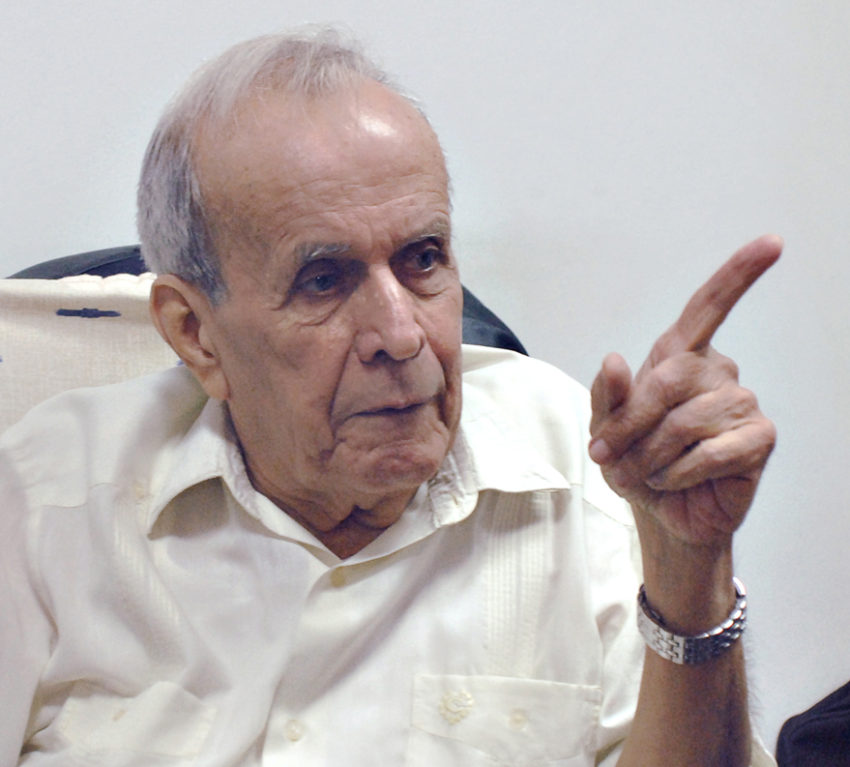
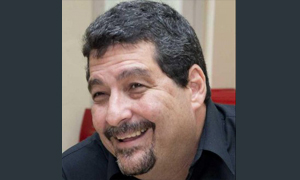
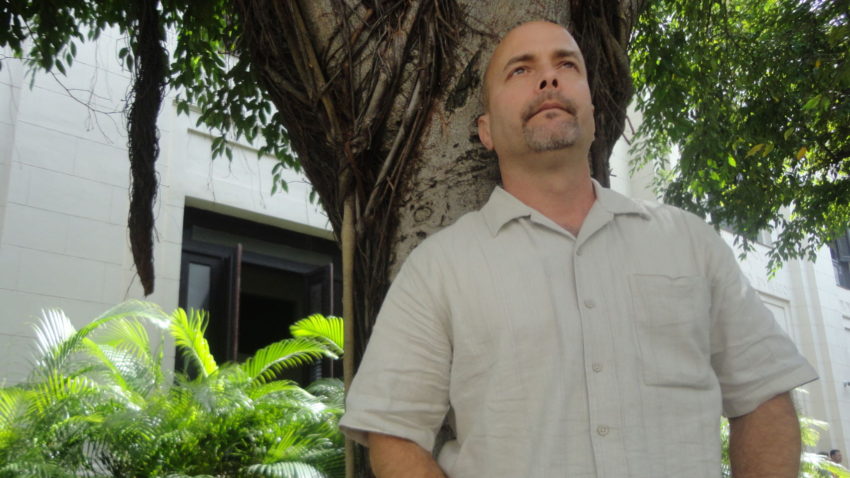
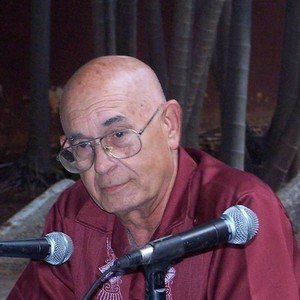
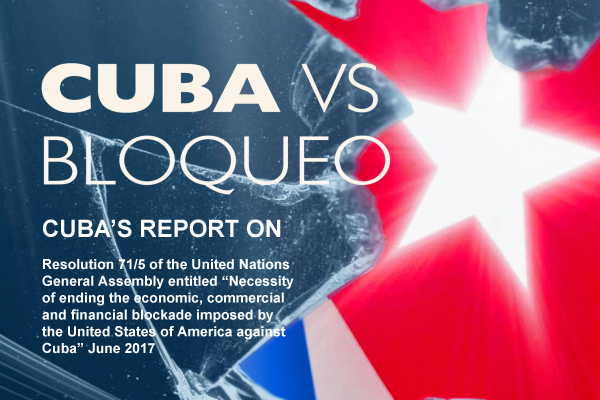
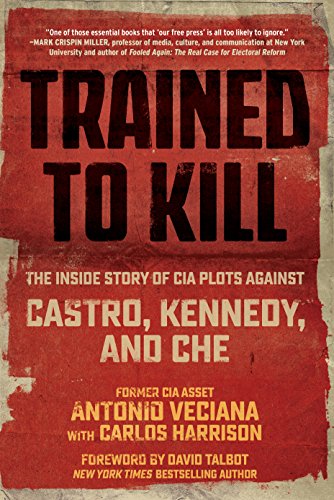
You must be logged in to post a comment.